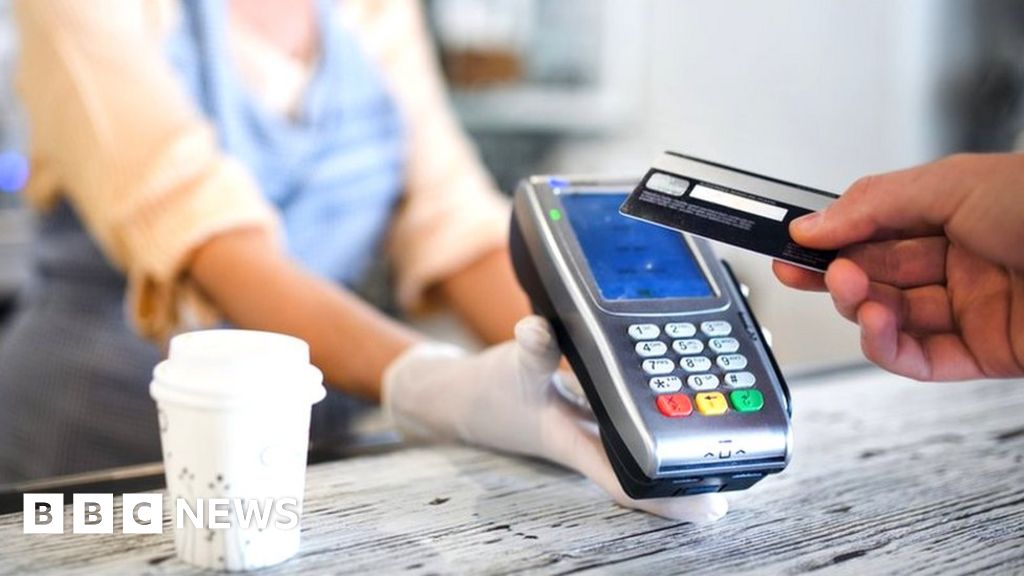Contactless Card Limit To Rise To £100 In October

By Kevin Peachey
Personal finance correspondent, BBC News
image sourceGetty Images
The spending limit on each use of a contactless card is to rise from £45 to £100 from 15 October, banks have revealed.
The maximum amount was increased from £30 to its current level at the start of the pandemic, and plans to raise it further were announced in the Budget.
Nearly two-thirds of all debit card transactions are made via the tap-and-go technology.
But academics have warned that raising the limit could increase crime.
When contactless card payments were introduced in 2007, the transaction limit was set at £10. Cards were generally used in this way in place of small change when buying snacks, papers and occasional groceries.
The limit was raised gradually, to £20 in 2012, then to £30 in 2015.
The pandemic accelerated a move away from cash, with shoppers often being encouraged to use contactless in many stores to reduce close contact between staff and customers.
It meant the government and industry hurriedly increased the limit to £45 and announced plans to raise it again to £100. Banks say that will allow people to pay, without the need for a Pin, when filling up the car with petrol or during weekly food shopping trips.
They added that, given the number of terminals that will need to be updated to accept the new limit, it would take some time for the new level to be introduced across all retailers.
Chancellor Rishi Sunak said: "Increasing the contactless limit will make it easier than ever to pay safely and securely. As people get back to the High Street, millions of payments will made be simpler, providing a welcome boost for retailers and shoppers."
However, there are concerns that the next increase will prove tempting for criminals to step up efforts to steal cards.
A report for UCL's Jill Dando Institute of Security and Crime Science said credit and debit cards were known as "hot property" for criminals.
"Raising the contactless card limit to £100 would likely make card theft more attractive, increasing a broad range of acquisitive crimes including snatch theft of wallets and purses, hold-up robberies, and home and vehicle break-ins to find cards that can be used fraudulently," the report said.
"Past experience suggests it could attract new cohorts of teen criminals who are more likely to progress to extended criminal careers, with implications for longer term crime rates."
From Chip War To Cloud War: The Next Frontier In Global Tech Competition
The global chip war, characterized by intense competition among nations and corporations for supremacy in semiconductor ... Read more
The High Stakes Of Tech Regulation: Security Risks And Market Dynamics
The influence of tech giants in the global economy continues to grow, raising crucial questions about how to balance sec... Read more
The Tyranny Of Instagram Interiors: Why It's Time To Break Free From Algorithm-Driven Aesthetics
Instagram has become a dominant force in shaping interior design trends, offering a seemingly endless stream of inspirat... Read more
The Data Crunch In AI: Strategies For Sustainability
Exploring solutions to the imminent exhaustion of internet data for AI training.As the artificial intelligence (AI) indu... Read more
Google Abandons Four-Year Effort To Remove Cookies From Chrome Browser
After four years of dedicated effort, Google has decided to abandon its plan to remove third-party cookies from its Chro... Read more
LinkedIn Embraces AI And Gamification To Drive User Engagement And Revenue
In an effort to tackle slowing revenue growth and enhance user engagement, LinkedIn is turning to artificial intelligenc... Read more

